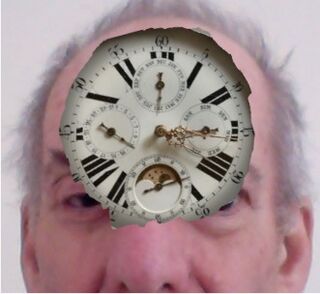Conjured Memories
Is the past not the past if we can conceive it in the mind as the present?
by Joseph Mazur Ph.D.
In a preceding post one of my most faithful readers, Kat, asked: “Is not the past, not really past, since the mind still perceives it happening in the present, with the memories?”
She is suggesting that perhaps time is just memory and anticipation. Memory gives us the past while anticipation gives us the future. But what does that say about the present moment, the “now?”
When we think of the past, we don’t generally think of it—as philosophers might—as being something external to the mind. Questioning the past, present, and future is central to the meaning of time. Kat is not questioning whether or not time exists; rather, she is asking whether it can be captured as a “now” when thinking about the past. It is an intriguing question that deserves some daring thought.
Take almost any passage written or spoken in the present tense. As a wild example, one of a billion randomly taken from an immense library of famous speeches, take one spoken by Former President George W. Bush at the United Nations General Assembly on November 10, 2001.
Time is passing. Yet for the United States of America, there will be no forgetting September 11th. We will remember every rescuer who died with honor. We will remember every family that lives with grief. We will remember the fire and ash ... the last phone calls ... the funerals of the children.
It is five sentences written about an event of the past, with predictions of the future, bringing both past and future together in the “now,” a paragraph about a time that happened nineteen years ago last Friday. It involves memory, for those who have lived through that time, and it forwards a memory placed as a “now” in the mind.
Moments that have past, exists only in the mind. This particular message brings images to the mind for almost anyone who was alive on September 11, 2001. Those images may dwell in history books, films, even in idle brain cells. But their existence does not transcend to life without a reader, or a spectator to activate the appropriate mechanism of bringing to life those brain cells and neurons that can call them up to thinking levels.
The present—that indescribably small instant, that point we imagine to be on a mathematical timeline—is simply an infinitesimal snapshot of our own awareness. We can think of it as our consciousness telling us that we are alive. The future can also be part of our awareness of what’s ahead, overseen by our instincts for survival, but the present is the now that lights our consciousness so we can see where we’ve been and where we’re going. It is that sly complex part of what goes on in the mind when thought, stimulation, and sensation are bound together whenever we are awake, and free to think.
Maybe that is why Einstein once wrote to his good friend Michele Besso that the distinction between past and future is a human illusion, confusion about what “now” is. You might assume that you are speaking to a person and that his or her “now” is the same as yours. It isn’t. Your friend’s now is your history.
Time is not just a t in a mathematical physics equation. It is something more in the mind and human spirit than in the workings of space-time physics. There is, however, a fundamental difference between the physicists’ notion of what time is and the standard everyday public understanding, what we might call the human perception of time, some inner rhythmic temporal impression.
Immanuel Kant once said, “Time is nothing but the form of the internal sense, that is, of our intuition of ourselves, and of our internal state.” I presume that he is talking about an internal geometric picture in the mind, an image that comes to us based on all our living experiences. Kant considered that internal picture:
We cannot think a line without drawing it in thought; we cannot think a circle without describing it; we cannot represent, at all, the three dimensions of space, without placing, from the same point, three lines perpendicularly on each other; nay, we cannot even represent time, except by attending, during our drawing a straight line (which is meant to be the external figurative representation of time)…
His understanding of time’s connection with space is certainly forceful, and, perhaps, foresighted, yet confusing after more than a century of our considering it to be relative.
We live day-to-day in personal and public time, not relative time. We live in the time reported to us by our clocks (more accurately by our phones). It is the present moment, yet we can recall highpoint moments of the past, and look toward the future. We move ahead imperceptibly in time. Events that were once in the future come into the present, then suddenly move into the past to remain the history of everything that once happened. What just happened can be raised up in the mind like a flashback, but that history is just a conjuring.
We cannot say the past is the present just because we can summon the past, no more than we can read a history book and think of it happening in the now. That said, as I once wrote, “time does not simply exist on its own without a mind to perceive it.” The beauty of the mind is that it can give us a riveted, entranced impression that we are time-traveling backward. Isn’t that wonderful?
I’d be pleased to hear what you think about this.
© 2020 Joseph Mazur